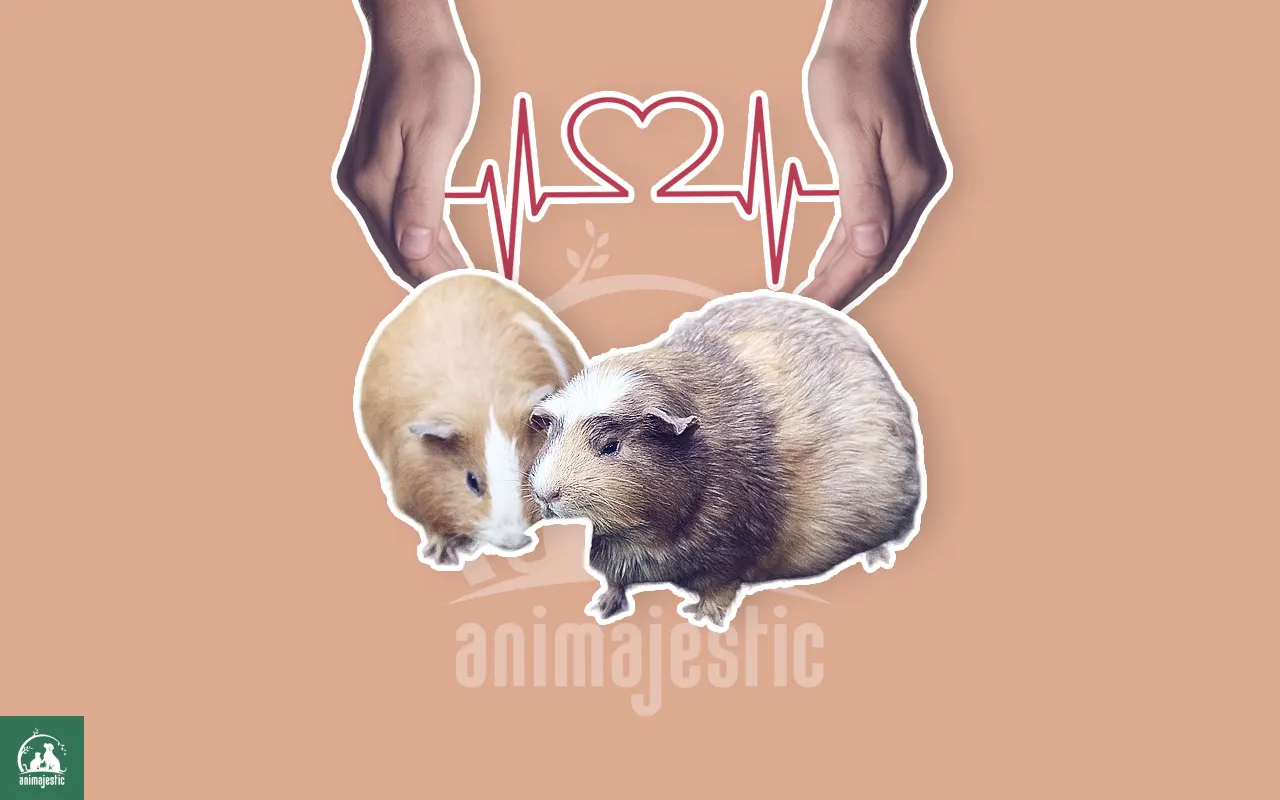Located between the fine pages of the animal kingdom’s book, you’ll find a charming and pet-friendly species that has captured many hearts and that’s Guinea Pigs.
But just like with any pet, potential owners wonder: How long do Guinea Pigs live? This exciting topic will cover everything around their lifespan and extra tips to help them live longer.
These cute, sociable rodents have rightfully earned their place among popular house pets.
So, How Long Do Guinea Pigs Live?
Guinea pigs have a relatively moderate lifespan compared to some other pets. On average, they live for about 5 to 7 years. However, this can vary depending on various factors, including genetics, diet, living conditions, and the level of care they receive.
As opposed to many other small pets like hamsters or ferrets, Guinea Pigs have an impressively long life expectancy with some reaching a solid decade of life.
These averages position Guinea Pigs as one of the small mammals with the longest lifespans, making them a considerable commitment as pets.
The Key Factors
The lifespan of Guinea Pigs isn’t set in stone but rather is largely influenced by three decisive factors: genetics, their diets, and the quality of care they receive.
Genetics
Unsurprisingly, genetics play a crucial role in determining a Guinea Pig’s lifespan. Certain breeds, like the Skinny Pig, are known to enjoy a longer life than others. Therefore, understanding the breed-specific health characteristics can guide in knowing what to expect in terms of lifespan.
Diet
Equally important as genetics, the dietary choices we make for our Guinea Pigs have an enormous impact on their overall health and lifespan. Regular meals consisting of high-quality Guinea Pig pellets, an abundance of hay, and fresh fruits and veggies can help ensure their vitality.
Care
Different from their wild relatives, domesticated Guinea Pigs heavily rely on their owners’ care and affection to lead a healthy, long life. A clean, spacious encasement, regular grooming intervals, and stimulating toys go a long way in ensuring your pet’s happiness and longevity.
A safe and secure cage is a must, along with regular cleaning to prevent the buildup of waste and bacteria.
Steps to Prolong the Life of Our Furry Friends
While genetic predispositions are beyond our control, we can actively influence the quality of care and dietary choices for our Guinea Pigs.
- Appropriate Diet: Seeking advice from a vet about appropriate feeding schedules and choices is paramount. Freshwater, hay, vegetables, and appropriate Guinea Pig pellets can help maintain your pet’s health.
- Active Lifestyle: Guinea Pigs love to move around. Providing a safe space for them to roam and explore helps curb obesity and fosters mental well-being.
- Social Interactions: Guinea Pigs thrive on social interactions, be it with their species or their warm caretaker. Hence, if you own only one Guinea Pig, be sure to dedicate time for bonding interaction daily.
- Regular Check-ups: Preventive care is always better than cure. Regularly scheduled vet visits can help spot potential health issues before they escalate.
- Mental Stimulation: Finally, mental well-being is just as important for Guinea Pigs. Toys, tunnels, or mazes can keep them engaged and trigger their investigative nature, providing them with a fulfilling life.
Conclusion
Bringing a Guinea Pig into the home isn’t just bringing in a pet but also welcoming a new member into the family.
While their lifespan might not match that of larger pets, it certainly spreads across several meaningful years. The right care, environment, and food can help guarantee that your guinea pig lives those years in robust health.
Remember, owning a pet is a pledge for their lifetime care. By accepting this earnest responsibility, you’re rewarded with a loving, friendly companion that will surely enrich your life.
